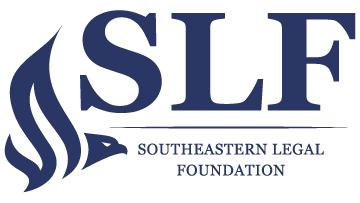WASHINGTON, DC (Nov. 14, 2023): Southeastern Legal Foundation (SLF) and the Beacon Center of Tennessee filed an amicus brief with the United States Supreme Court supporting a California man, George Sheetz, who had to pay El Dorado County over $23,000 in road upgrades before he could have a permit to build his home. Lower courts allowed the county to make extortionate demands for money from Mr. Sheetz solely because the fees were mandated by law instead of imposed by an administrative body. Last summer, SLF urged the Supreme Court to hear Mr. Sheetz’s case because the lower court rulings deepened a divide among state and federal courts about whether the Takings Clause protects property owners when their local legislatures place burdensome conditions on their building permits. The Supreme Court has now agreed to hear the case.
It should not matter whether property is taken by law or not. The Bill of Rights applies to all branches of government. So when El Dorado County required a private property owner to pay for county road upgrades before he could start building his home, he sued under the Fifth Amendment Takings Clause. But the California state courts held that there is a difference between a bad action that comes from a legislature and a bad action that comes from an administrative body, and they ruled against Mr. Sheetz because the permit requirement was legislative in nature. In ruling this way, they furthered a divide among state and federal courts about whether it matters which branch of government takes property.
SLF and Beacon call on the Supreme Court in their brief to clarify that it does not matter whether a taking is done by law or administrative action. They compared Mr. Sheetz’s case with Knight v. Nashville, a recent case they won in federal court on behalf of private property owners. There, the city of Nashville imposed a law on property owners that required them to install sidewalks or pay a fee to install new sidewalks before they could build a family home on their property. Unlike the California courts in Sheetz, the Sixth Circuit Court of Appeals held that the Takings Clause applies equally to all branches of government, so Nashville’s extortionate demands were unconstitutional.
In their amicus brief, SLF and Beacon urge the Supreme Court to reach the same conclusion that the Sixth Circuit reached in Knight.
SLF Director of Litigation Braden Boucek said, “We have been saying this for years—courts must hold lawmakers accountable when they take citizen’s property from them. The Knight case highlights how the government tries to use legislative mandates to get around the Constitution, and how legislatures can be just as extortionate and overbearing as administrative zoning boards. This case is an opportunity for the Supreme Court to course correct and provide necessary clarity.”
Download press release.
